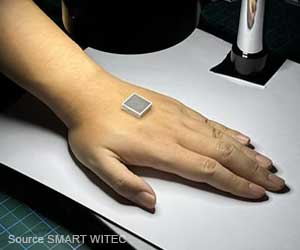The miniature accelerator is a radiofrequency quadrupole designed to produce high-intensity beams, which can be used for the treatment of cancer with protons.

The mini-Linac will consist of four modules, each 50cm long, the first of which has already been constructed. "With this first module we have validated all of the stages of construction and the concept in general," said Serge Mathot of the Cern engineering department.
The miniature accelerator is a radiofrequency quadrupole (RFQ), a component found at the start of all proton accelerator chains. RFQs are designed to produce high-intensity beams. The challenge for the mini-Linac was to double the operating frequency of the RFQ in order to shorten its length, which had never before been achieved.
"Thanks to new beam dynamics and innovative ideas for the radiofrequency and mechanical aspects, we came up with an accelerator de sign that was much better adapted to the practical requirements of medical applications," said Alessandra Lombardi, in charge of the design of the RFQ.
The mini-RFQ can produce low-intensity beams, with no significant losses, of just a few microamps that are grouped at a frequency of 750 MHz.
These specifications make it a perfect injector for the new generation of high-frequency, compact linear accelerators used for the treatment of cancer with protons. It will also be capable of accelerating alpha particles for advanced radiotherapy.
 MEDINDIA
MEDINDIA




 Email
Email









